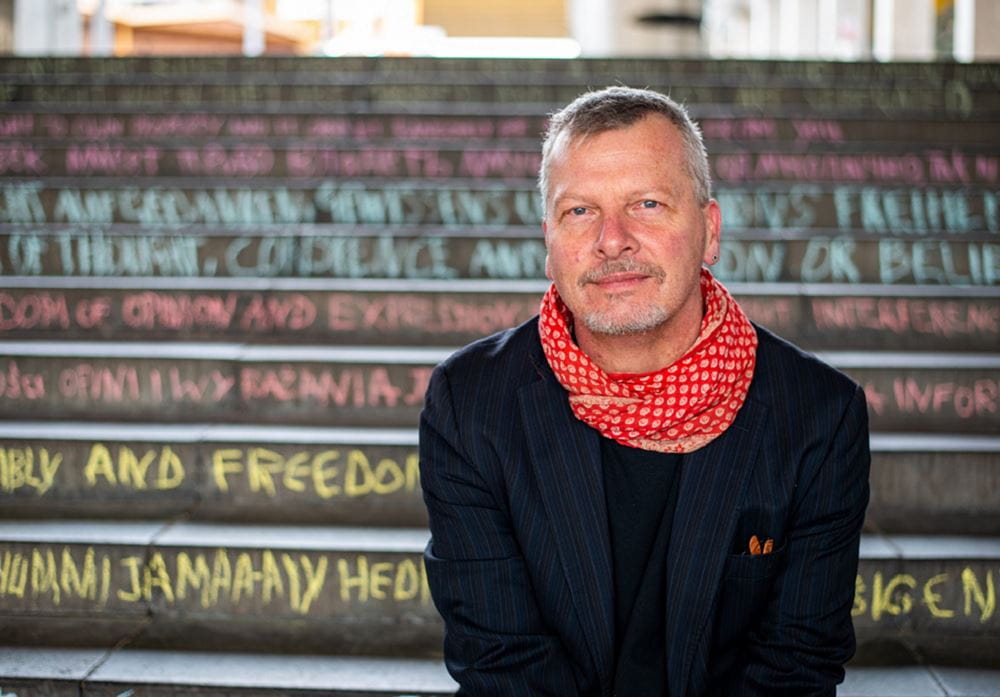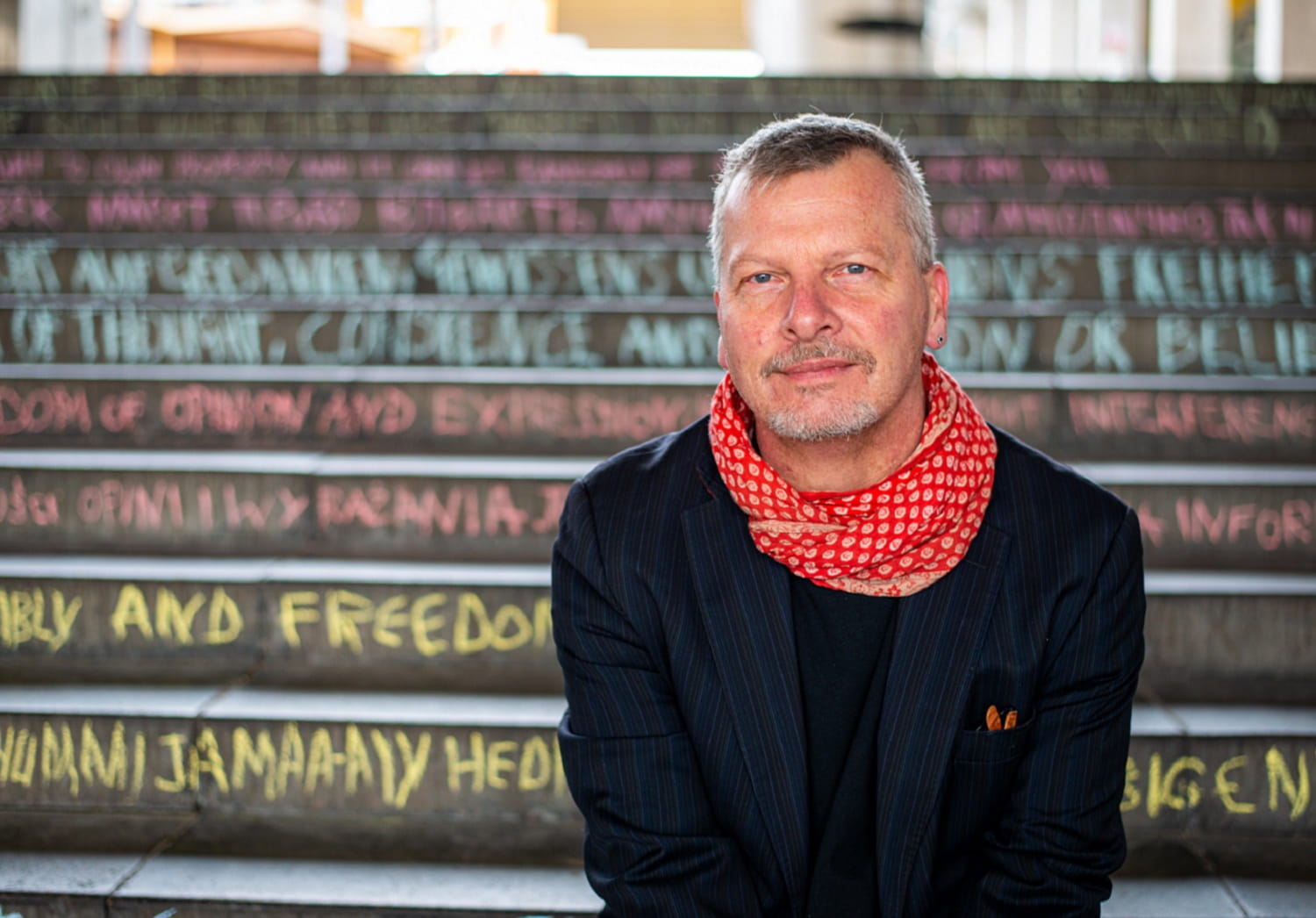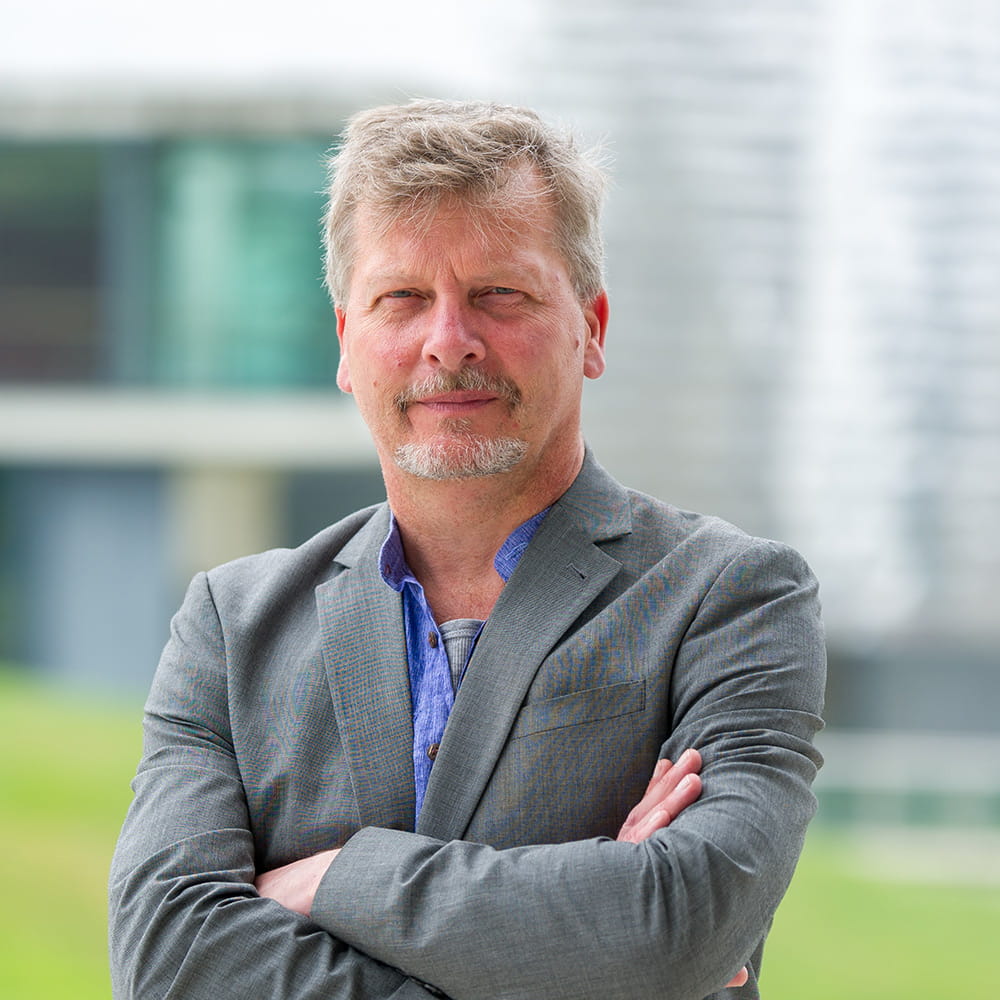How the Human Rights Centre is meeting the challenges of COVID-19 and the future of human rights

Since Dr Andrew Fagan became the Director of our globally renowned Human Rights Centre (HRC) in January 2020, the world has been beset by COVID-19, continuing political instability, growing socio-economic inequalities, the worsening consequences of global warming and an ongoing full-scale war on the European continent. Dr Fagan talks about the progress the Human Rights Centre has made in the past two years, and how it's responded to these changes through its leading research and education.
The need for human rights is more urgent than ever
“The global human rights project is currently confronted by existential challenges, which threaten the fundamental human rights of countless millions of people across the globe. While the challenges to human rights are arguably greater than at any time since the end of the Second World War, our need for human rights is more urgent than ever."
“We are all of us living through dark and difficult times. Many people may be inclined towards despair and hopelessness as they continue to digest the daily news cycle of man-made disasters and catastrophes. A commitment to the principles enshrined by human rights – dignity, equal liberty, non-discrimination and a basic respect for all human beings – is more urgent and pressing than at any time during our lifetime. The Human Rights Centre (HRC) is redoubling its efforts to provide world-leading education and scholarship in human rights and social justice.
"Since January 2020, the HRC has spear-headed a number of important research and educational initiatives in its ongoing and careful response to the many global challenges we face. The HRC played an important role in the rapid response publication of COVID-19, Law and Human Rights: Essex Dialogues, which brought Essex’s expertise in law and human rights to bear upon the very many issues raised by the global pandemic.
"We have also substantially refurbished our flag-ship MA Theory and Practice of Human Rights, which now comprises a number of distinct pathways, including areas such as Gender, Race and Identity and (from October 2022) a new pathway in the Arts and Human Rights." Providing an education that is both relevant and responsive to the demands of a changing society underpins our core values. Film, literature, theatre, music and the media generally play vital roles in raising awareness of human rights and social justice issues. Introducing this new pathway will mean that graduates are able to specialise in this new and emerging field, and carve a career in a society where the arts and human rights interconnect.
"The Essex Human Rights Summer School - which is open to human rights professionals and practitioners, has also benefitted significantly from a thorough refurbishment and a comprehensive programme designed to benefit human rights practitioners and scholars from across the globe.
"The HRC is going to continue to use our influence and global reputation to shape the development of the human rights project through our research, education, and outreach initiatives."
Are you impatient to join Essex in our fight for social justice?
As we go forward into an increasingly uncertain global landscape, we’re looking for engaged, motivated students who are willing to question the norm, challenge convention, push boundaries, and stand up for those whose voices need a platform. If you want to be a part of this future, browse all human rights courses, and apply to join the Essex community today.
Dr Fagan writes for Essex blogs, and the School of Law’s blog covering subjects including Consumerism, Homophobia, the situation in Myanmar, and the role of human rights in responding to terrorism.
Applications for the Human Rights Summer School are open, and the Summer School will be running between Monday 27 June to Friday 8 July 2022.
